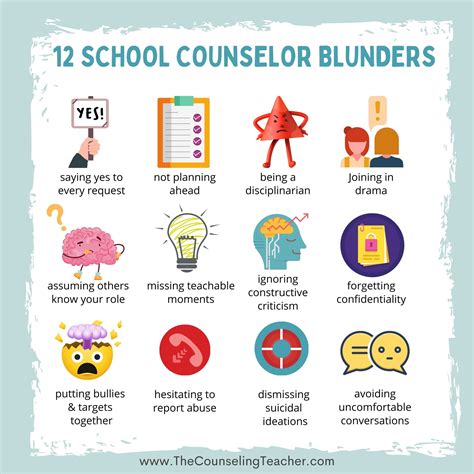Guidance counselors play a vital role in the lives of students by providing support, guidance, and advice on academic, career, personal, and social issues. They help students develop the skills and knowledge necessary to succeed in school and beyond.

Education and Training
The first step to becoming a guidance counselor is to earn a bachelor’s degree in counseling, psychology, or a related field. Many guidance counselors also hold a master’s degree in counseling or guidance counseling.
In addition to academic qualifications, guidance counselors must also complete supervised fieldwork experience. This experience allows them to develop the skills and knowledge necessary to work with students effectively.
Certification and Licensure
Most states require guidance counselors to be certified or licensed. Certification and licensure requirements vary from state to state. Candidates typically need to pass a national certification exam and complete a certain number of continuing education hours each year.
Personal Qualities
In addition to education and training, guidance counselors must also possess certain personal qualities, such as:
- Empathy: The ability to understand and share the feelings of others.
- Communication skills: The ability to communicate effectively with students, parents, and other stakeholders.
- Problem-solving skills: The ability to identify and resolve problems.
- Organizational skills: The ability to manage time and resources effectively.
- Patience: The ability to remain calm and supportive under pressure.
Job Outlook
The job outlook for guidance counselors is expected to be good over the next few years. This is due to the increasing number of students who are seeking guidance and support from counselors.
Salary
The median annual salary for guidance counselors is $56,310, according to the U.S. Bureau of Labor Statistics. However, salaries can vary depending on experience, education, and location.
Benefits of Being a Guidance Counselor
There are many benefits to being a guidance counselor. These include:
- Job satisfaction: Guidance counselors report high levels of job satisfaction. They enjoy helping students and making a difference in their lives.
- Work-life balance: Guidance counselors typically have a good work-life balance. They work regular hours and have weekends and holidays off.
- Opportunities for advancement: Guidance counselors can advance to positions such as school counseling director or principal.
Challenges of Being a Guidance Counselor
There are also some challenges to being a guidance counselor. These include:
- Emotional toll: Guidance counselors often work with students who are facing difficult issues. This can take an emotional toll on counselors.
- Workload: Guidance counselors often have a heavy workload. They may need to work long hours to meet the needs of their students.
- Bureaucracy: Guidance counselors may need to deal with a lot of bureaucracy, such as completing paperwork and attending meetings.
Tips for Becoming a Guidance Counselor
If you are interested in becoming a guidance counselor, there are a few things you can do to prepare:
- Get involved in extracurricular activities that help you develop your counseling skills, such as peer counseling or mentoring.
- Volunteer at a local counseling center or school.
- Shadow a guidance counselor to learn more about the day-to-day job.
- Take courses in counseling, psychology, and education.
- Earn a bachelor’s degree in counseling, psychology, or a related field.
- Complete supervised fieldwork experience.
- Pass a national certification exam.
- Complete continuing education hours each year.
Conclusion
Being a guidance counselor is a rewarding career that offers many opportunities for helping students. If you are passionate about helping others, have strong communication and problem-solving skills, and are organized and efficient, then a career as a guidance counselor may be right for you.
FAQs
What is the difference between a guidance counselor and a school counselor?
Guidance counselors and school counselors are both licensed professionals who provide support to students. However, guidance counselors typically work with students on academic and career issues, while school counselors work with students on a wider range of issues, including personal and social issues.
How can I find a guidance counselor near me?
You can find a guidance counselor near you by searching online or contacting your local school district.
What are the hours of a guidance counselor?
Guidance counselors typically work regular hours, including evenings and weekends.
How much do guidance counselors make?
The median annual salary for guidance counselors is $56,310. However, salaries can vary depending on experience, education, and location.
